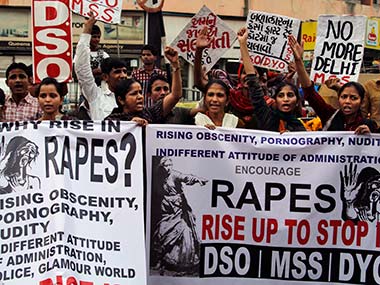Meerut, Aug 19: Muzaffarnagar has witnessed a 157% rise in rape cases in two years - from 19 cases in 2011 to 49 in 2013 - says data from the National Crime Records Bureau (NCRB). 27 rapes were reported from the area in 2012. Data further suggests that the figures rose rapidly following the riots in the area in September 2013.
"The fact is that more and more cases are now being registered by the police," said Alok Priyadarshi, SP (rural), adding that cops are being more sensitive in dealing with crimes against women, taking note of the Supreme Court's guidelines in the matter.
"A large number of fake cases are also being registered, as a way to resolve family conflicts, longstanding rivalries or affairs gone wrong," the SP also said.
A total of 344 cases of rapes, dowry deaths and domestic violence were filed in 2013, as compared to 247 in 2011 and 268 in 2012.
The rising figures, however, has created a sense of insecurity among women who work in the fields or use public transport to commute during late hours. Sexual harassment is a daily occurrence that goes unnoticed, allege many of them.
"Being stared at or touched inappropriately while travelling is a routine affair, When approached, the cops discourage us from registering a case saying we have to keep going to the police station and court for a long time," said Sapna Tomar, a regular rail commuter.
"There are not enough policemen here to ensure our safety. We feel insecure all the time. Who do we turn to for help, if under attack?" said a college student.





Comments
Add new comment